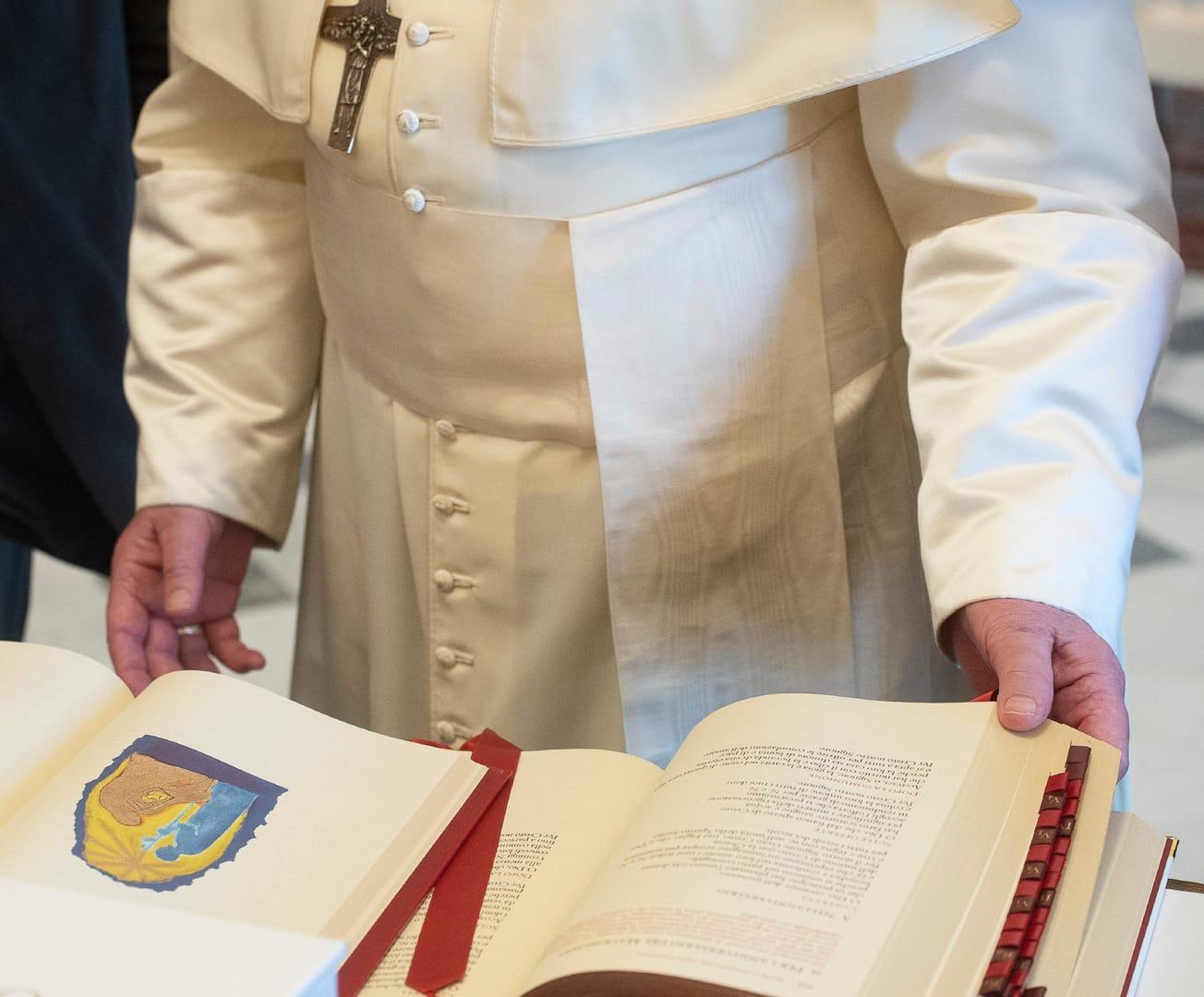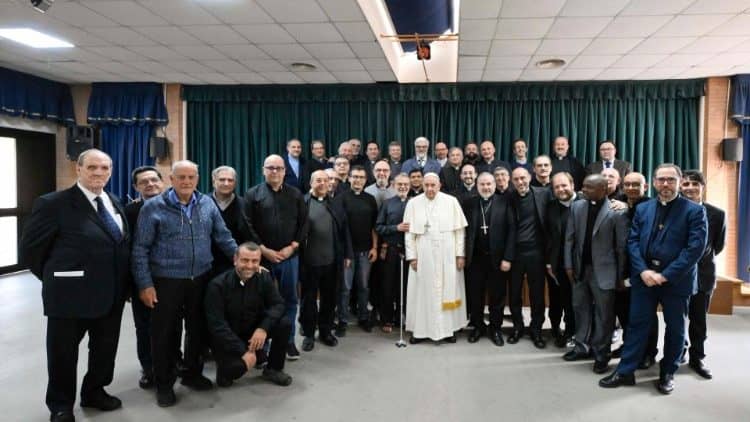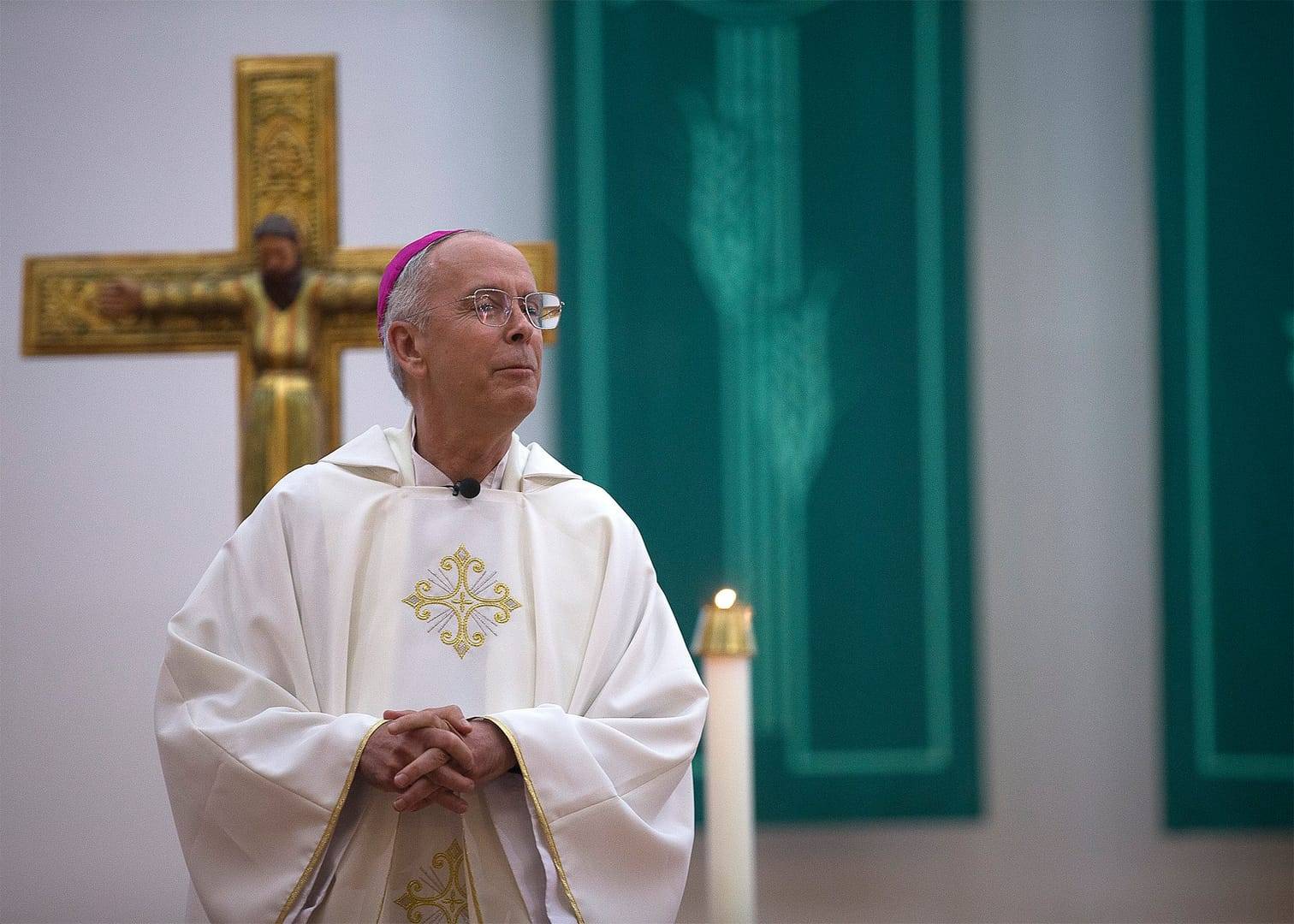ROME — The Italian bishops finally have printed their new Missal, and they gave the symbolic first copy to Pope Francis, who usually celebrates Mass in Italian.
The Italian bishops’ conference worked for almost 20 years translating the texts of all the prayers used at Mass by the celebrants and the faithful and then discussing proposed changes with the Congregation for Divine Worship and the Sacraments.
The use of the new Missal is obligatory throughout Italy as of Easter, April 4, 2021, but priests can begin using the translation as soon as they get a copy of the Missal. Local bishops can set an earlier date for its mandated use in their dioceses.
With the presentation to the pope, the headlines in Italy were about the changed translations of the Lord’s Prayer and of the Gloria, both which now match the Bible translation the bishops approved in 2002 for use in the liturgy.
The Our Father, matching the translation of Matthew 6:9-13, now includes the line, “Do not abandon us to temptation but deliver us from evil” instead of “Do not lead us into temptation but deliver us from evil.”
With the Gloria, instead of beginning with “Glory to God in the highest, and on earth peace to people of goodwill,” the new version is the Italian equivalent of “Glory to God in the highest, and peace on earth to people, beloved by the Lord.” The line comes from Luke 2:14.
“To reduce such a complex work to two or three passages that were retouched signifies a lack of understanding about its importance,” Bishop Claudio Maniago of Castellaneti, president of the bishops’ liturgy commission, told Avvenire, the Catholic newspaper.
“The book was revised in its totality” following the promulgation of the Missal in 2000 by St. John Paul II and its actual release in Latin two years later, he said.
In addition to fidelity to the Latin text, the bishop said, there was “also, and most of all, an effort to render the text as usable as possible and, so, also make it an instrument of growth for the Italian church.”
The bishops, he said, worked hard to keep changes to the people’s prayers to a minimum.
One thing English speakers noticed was that in the Eucharistic prayer, the new Italian edition continues to say Jesus’ blood was poured out “per tutti” — “for all” — and not “per molti,” meaning “for many.”
The phrase, spoken by the priest as he raises the chalice and quotes Jesus at the Last Supper, is an example of where the new Italian Missal translation does not match the Italian bishops’ most recent Bible translation, which says, “per molti,” nor does it match exactly the original Latin, which says “pro multis.”
The translation of the phrase was strongly debated as bishops’ conferences around the world were making their translations. The English, Spanish and French translations of the missal use the equivalent of “for many.”
In 2001, the Congregation for Divine Worship and the Sacraments published “Liturgiam Authenticam” (“The Authentic Liturgy”), which insisted on translations that were as close to literal translations of the Latin as possible. But in 2017, Pope Francis published “Magnum Principium” (“The Great Principle”), emphasizing the role of local bishops’ conferences in determining the best translations.
The document’s title refers to what Pope Francis called the “great principle” of the Second Vatican Council that the liturgy should be understood by the people at prayer, and therefore bishops were asked to prepare and approve translations of the texts.

















